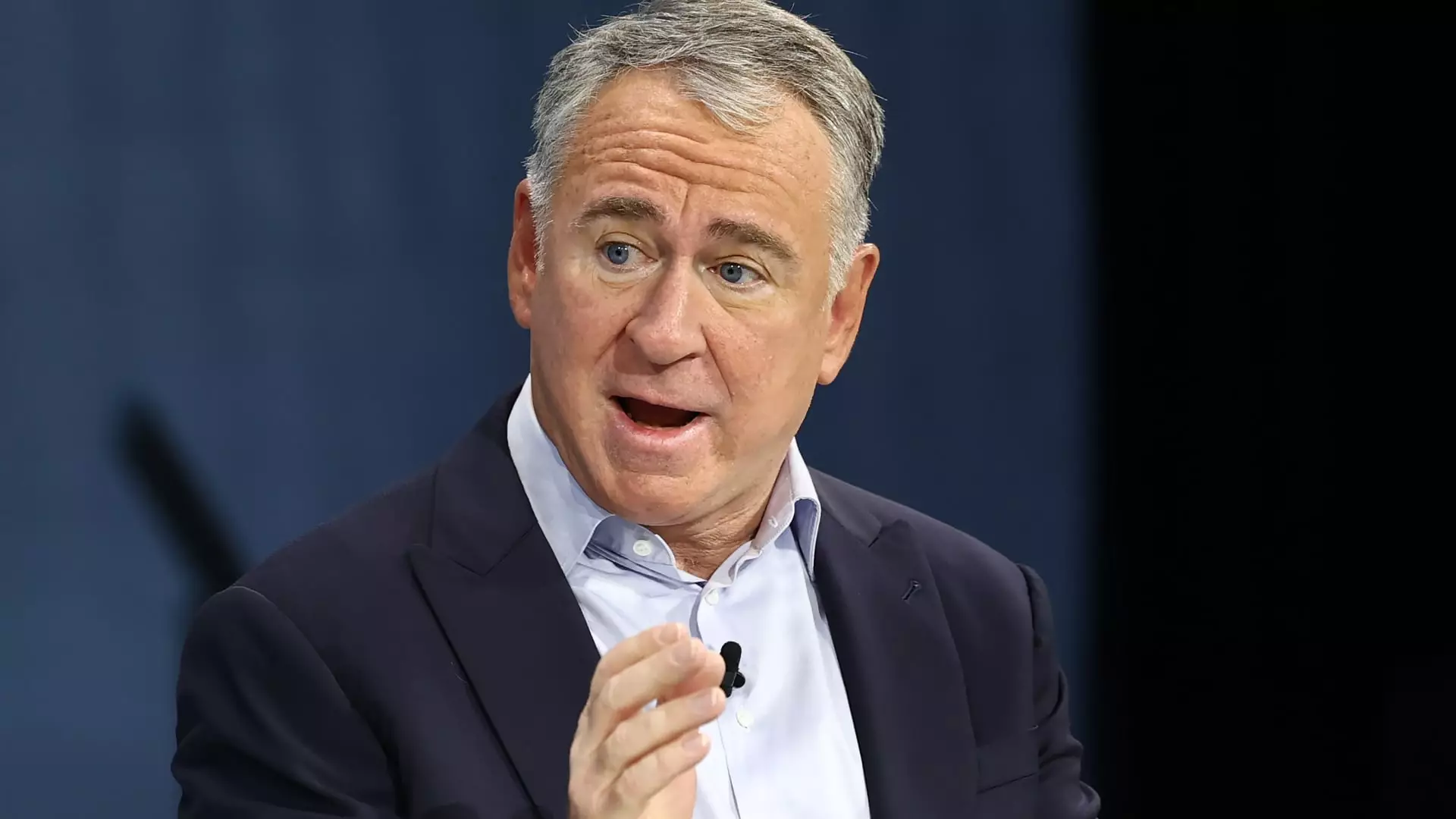Ken Griffin, the CEO of Citadel, has recently voiced his concerns regarding the implications of President Donald Trump’s aggressive trade strategies. During his address at the UBS Financial Services Conference in Key Biscayne, Florida, Griffin articulated a sense of urgency, emphasizing that the rhetoric surrounding U.S. trade policy could have long-lasting detrimental effects. He described the current atmosphere as fraught with tension, asserting that the brash language employed in trade discussions has already inflicted damage on perceptions of the United States as a reliable trade partner.
Griffin’s remarks signal a growing unease among financial leaders about the future of international trade relationships. His insights highlight the crucial role that perception plays in the global marketplace, particularly concerning trust and dependability among trading nations. If CEOs and policymakers begin to feel uncertain or skeptical about America’s commitments, it could lead to a reluctance to engage in significant financial commitments.
Impacts of Tariffs on Business Strategy
Trump’s decision to impose a 25% tariff on steel and aluminum imports, compounded by existing tariffs on all Chinese imports, has triggered a wave of apprehension among multinational corporations. Griffin warns that such economic maneuvers may create an unpredictable environment for long-term investments. The unpredictability generated by aggressive trade tactics could deter businesses from making substantial investments needed for growth and expansion.
Multinational companies typically plan for decades ahead, considering various factors that influence their operational costs and market strategies. When faced with fluctuating tariff laws and trade agreements, businesses find it increasingly difficult to formulate coherent plans. Griffin’s assertion spotlights a significant dilemma for CEOs who must navigate these turbulent waters; the stakes are high, and the costs of a miscalculated strategy could be detrimental.
Crony Capitalism and Economic Consequences
In addition to the immediate financial concerns raised by Griffin, he has also addressed the potential rise of crony capitalism as a side effect of the current trade policies. Under this system, close partnerships between business executives and government representatives can lead to inequitable practices that favor certain companies, ultimately stifling competition and innovation. Griffin’s warning carries weight as it reflects a broader concern about the long-term viability of fair trade practices and the potential marginalization of businesses that do not enjoy political favor.
The specter of crony capitalism paints a troubling picture for the future of American businesses in a global framework. If tariffs and policies continue to be wielded as tools of economic warfare, they may inadvertently create an environment ripe for manipulation, further straying from the principles of free-market competition that many advocates believe benefit the economy as a whole.
As Griffin hinted, the potential ramifications of combative trade policies extend far beyond immediate economic impacts; they pose a serious risk to America’s reputation in the global market. His warnings urge a reevaluation of strategies that embrace cooperative trade relations rather than hostility. As the complexities of the global economy continue to evolve, fostering collaboration and trust among trading partners could be essential for sustaining long-term growth and stability in the marketplace.

